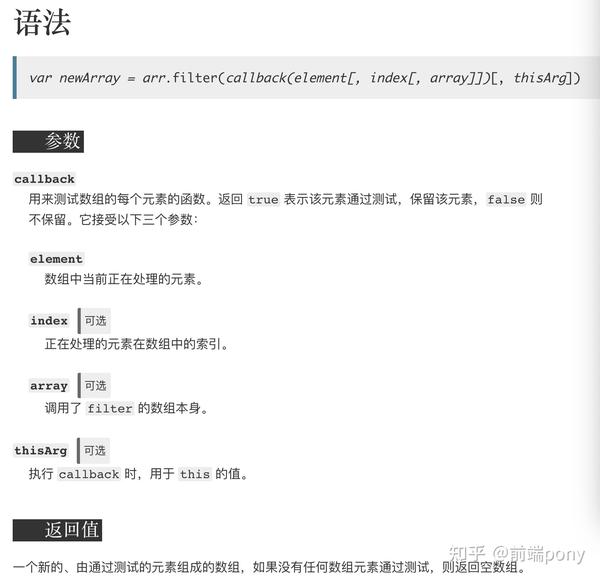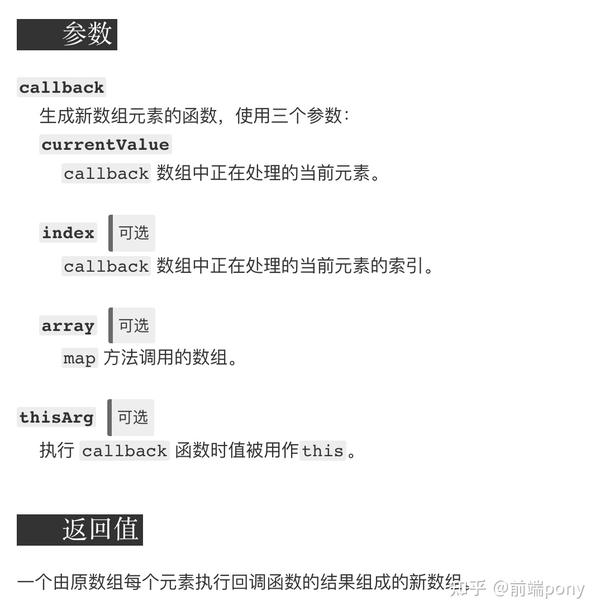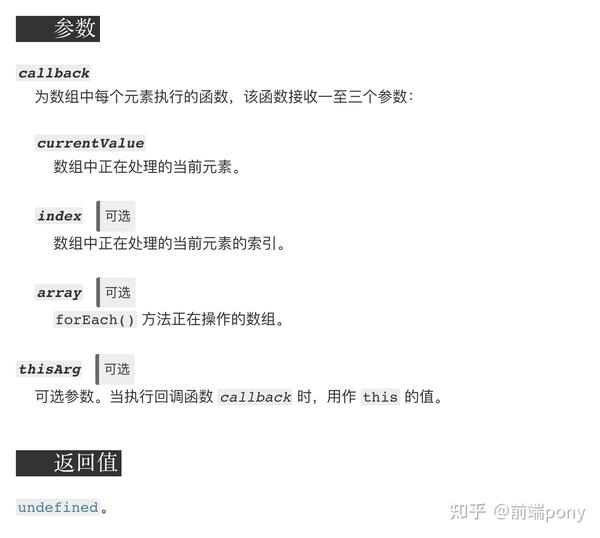15个手写JS,巩固你的JS基础(面试高频)
作为前端开发,JS是重中之重,最近结束了面试的高峰期,基本上offer也定下来了就等开奖,趁着这个时间总结下32个手写JS问题,这些都是高频面试题,希望对你能有所帮助。
关于源码都紧遵规范,都可跑通MDN示例,其余的大多会涉及一些关于JS的应用题和本人面试过程
01.数组扁平化
数组扁平化是指将一个多维数组变为一个一维数组
const arr = [1, [2, [3, [4, 5]]], 6]; // => [1, 2, 3, 4, 5, 6]
方法一:使用flat()
const res1 = arr.flat(Infinity);
方法二:利用正则
const res2 = JSON.stringify(arr).replace(/\[|\]/g, '').split(',');
但数据类型都会变为字符串
方法三:正则改良版本
const res3 = JSON.parse('[' + JSON.stringify(arr).replace(/\[|\]/g, '') + ']');
方法四:使用reduce
const flatten = arr => {
return arr.reduce((pre, cur) => {
return pre.concat(Array.isArray(cur) ? flatten(cur) : cur);
}, [])
}
const res4 = flatten(arr);
- 1
- 2
- 3
- 4
- 5
- 6
可以获取PDF书籍源码、教程等给大家免费使用
点击链接加入群聊【web前端技术群】:
方法五:函数递归
const res5 = [];
const fn = arr => {
for (let i = 0; i < arr.length; i++) {
if (Array.isArray(arr[i])) {
fn(arr[i]);
} else {
res5.push(arr[i]);
}
}
}
fn(arr);
- 1
- 2
- 3
- 4
- 5
- 6
- 7
- 8
- 9
- 10
02.数组去重
const arr = [1, 1, '1', 17, true, true, false, false, 'true', 'a', {}, {}];
// => [1, '1', 17, true, false, 'true', 'a', {}, {}]
- 1
方法一:利用Set
const res1 = Array.from(new Set(arr));
方法二:两层for循环+splice
const unique1 = arr => {
let len = arr.length;
for (let i = 0; i < len; i++) {
for (let j = i + 1; j < len; j++) {
if (arr[i] === arr[j]) {
arr.splice(j, 1);
// 每删除一个树,j--保证j的值经过自加后不变。同时,len--,减少循环次数提升性能
len--;
j--;
}
}
}
return arr;
}
- 1
- 2
- 3
- 4
- 5
- 6
- 7
- 8
- 9
- 10
- 11
- 12
- 13
方法三:利用indexOf
const unique2 = arr => {
const res = [];
for (let i = 0; i < arr.length; i++) {
if (res.indexOf(arr[i]) === -1) res.push(arr[i]);
}
return res;
}
- 1
- 2
- 3
- 4
- 5
- 6
当然也可以用include、filter,思路大同小异。
方法四:利用include
const unique3 = arr => {
const res = [];
for (let i = 0; i < arr.length; i++) {
if (!res.includes(arr[i])) res.push(arr[i]);
}
return res;
}
- 1
- 2
- 3
- 4
- 5
- 6
方法五:利用filter
const unique4 = arr => {
return arr.filter((item, index) => {
return arr.indexOf(item) === index;
});
}
- 1
- 2
- 3
- 4
方法六:利用Map
const unique5 = arr => {
const map = new Map();
const res = [];
for (let i = 0; i < arr.length; i++) {
if (!map.has(arr[i])) {
map.set(arr[i], true)
res.push(arr[i]);
}
}
return res;
}
- 1
- 2
- 3
- 4
- 5
- 6
- 7
- 8
- 9
- 10
03.类数组转化为数组
类数组是具有length属性,但不具有数组原型上的方法。常见的类数组有arguments、DOM操作方法返回的结果。
方法一:Array.from
Array.from(document.querySelectorAll('div'))
方法二:Array.prototype.slice.call()
Array.prototype.slice.call(document.querySelectorAll('div'))
方法三:扩展运算符
[...document.querySelectorAll('div')]
方法四:利用concat
Array.prototype.concat.apply([], document.querySelectorAll('div'));
04.Array.prototype.filter()


Array.prototype.filter = function(callback, thisArg) {
if (this == undefined) {
throw new TypeError('this is null or not undefined');
}
if (typeof callback !== 'function') {
throw new TypeError(callback + 'is not a function');
}
const res = [];
// 让O成为回调函数的对象传递(强制转换对象)
const O = Object(this);
// >>>0 保证len为number,且为正整数
const len = O.length >>> 0;
for (let i = 0; i < len; i++) {
// 检查i是否在O的属性(会检查原型链)
if (i in O) {
// 回调函数调用传参
if (callback.call(thisArg, O[i], i, O)) {
res.push(O[i]);
}
}
}
return res;
}
- 1
- 2
- 3
- 4
- 5
- 6
- 7
- 8
- 9
- 10
- 11
- 12
- 13
- 14
- 15
- 16
- 17
- 18
- 19
- 20
- 21
- 22
- 23
对于>>>0有疑问的:解释>>>0的作用
05.Array.prototype.map()


Array.prototype.map = function(callback, thisArg) {
if (this == undefined) {
throw new TypeError('this is null or not defined');
}
if (typeof callback !== 'function') {
throw new TypeError(callback + ' is not a function');
}
const res = [];
// 同理
const O = Object(this);
const len = O.length >>> 0;
for (let i = 0; i < len; i++) {
if (i in O) {
// 调用回调函数并传入新数组
res[i] = callback.call(thisArg, O[i], i, this);
}
}
return res;
}
- 1
- 2
- 3
- 4
- 5
- 6
- 7
- 8
- 9
- 10
- 11
- 12
- 13
- 14
- 15
- 16
- 17
- 18
06.Array.prototype.forEach()


forEach跟map类似,唯一不同的是forEach是没有返回值的。
Array.prototype.forEach = function(callback, thisArg) {
if (this == null) {
throw new TypeError('this is null or not defined');
}
if (typeof callback !== "function") {
throw new TypeError(callback + ' is not a function');
}
const O = Object(this);
const len = O.length >>> 0;
let k = 0;
while (k < len) {
if (k in O) {
callback.call(thisArg, O[k], k, O);
}
k++;
}
}
- 1
- 2
- 3
- 4
- 5
- 6
- 7
- 8
- 9
- 10
- 11
- 12
- 13
- 14
- 15
- 16
07.Array.prototype.reduce()


Array.prototype.reduce = function(callback, initialValue) {
if (this == undefined) {
throw new TypeError(‘this is null or not defined’);
}
if (typeof callback !== ‘function’) {
throw new TypeError(callbackfn + ’ is not a function’);
}
const O = Object(this);
const len = this.length >>> 0;
let accumulator = initialValue;
let k = 0;
// 如果第二个参数为undefined的情况下
// 则数组的第一个有效值作为累加器的初始值
if (accumulator === undefined) {
while (k < len && !(k in O)) {
k++;
}
// 如果超出数组界限还没有找到累加器的初始值,则TypeError
if (k >= len) {
throw new TypeError(‘Reduce of empty array with no initial value’);
}
accumulator = O[k++];
}
while (k < len) {
if (k in O) {
accumulator = callback.call(undefined, accumulator, O[k], k, O);
}
k++;
}
return accumulator;
}
- 1
- 2
- 3
- 4
- 5
- 6
- 7
- 8
- 9
- 10
- 11
- 12
- 13
- 14
- 15
- 16
- 17
- 18
- 19
- 20
- 21
- 22
- 23
- 24
- 25
- 26
- 27
- 28
- 29
- 30
- 31
08.Function.prototype.apply()
第一个参数是绑定的this,默认为window,第二个参数是数组或类数组
Function.prototype.apply = function(context = window, args) {
if (typeof this !== ‘function’) {
throw new TypeError(‘Type Error’);
}
const fn = Symbol(‘fn’);
context[fn] = this;
const res = contextfn;
delete context[fn];
return res;
}
- 1
- 2
- 3
- 4
- 5
- 6
- 7
- 8
- 9
- 10
09.Function.prototype.call
于call唯一不同的是,call()方法接受的是一个参数列表
Function.prototype.call = function(context = window, …args) {
if (typeof this !== ‘function’) {
throw new TypeError(‘Type Error’);
}
const fn = Symbol(‘fn’);
context[fn] = this;
const res = contextfn;
delete context[fn];
return res;
}
- 1
- 2
- 3
- 4
- 5
- 6
- 7
- 8
- 9
10.Function.prototype.bind
Function.prototype.bind = function(context, …args) {
if (typeof this !== ‘function’) {
throw new Error(“Type Error”);
}
// 保存this的值
var self = this;
return function F() {
// 考虑new的情况
if(this instanceof F) {
return new self(…args, …arguments)
}
return self.apply(context, […args, …arguments])
}
}
- 1
- 2
- 3
- 4
- 5
- 6
- 7
- 8
- 9
- 10
- 11
- 12
- 13
11.debounce(防抖)
触发高频时间后n秒内函数只会执行一次,如果n秒内高频时间再次触发,则重新计算时间。
const debounce = (fn, time) => {
let timeout = null;
return function() {
clearTimeout(timeout)
timeout = setTimeout(() => {
fn.apply(this, arguments);
}, time);
}
};
- 1
- 2
- 3
- 4
- 5
- 6
- 7
- 8
防抖常应用于用户进行搜索输入节约请求资源,window触发resize事件时进行防抖只触发一次。
12.throttle(节流)
高频时间触发,但n秒内只会执行一次,所以节流会稀释函数的执行频率。
const throttle = (fn, time) => {
let flag = true;
return function() {
if (!flag) return;
flag = false;
setTimeout(() => {
fn.apply(this, arguments);
flag = true;
}, time);
}
}
- 1
- 2
- 3
- 4
- 5
- 6
- 7
- 8
- 9
- 10
节流常应用于鼠标不断点击触发、监听滚动事件。
13.函数珂里化
指的是将一个接受多个参数的函数 变为 接受一个参数返回一个函数的固定形式,这样便于再次调用,例如f(1)(2)
经典面试题:实现add(1)(2)(3)(4)=10; 、 add(1)(1,2,3)(2)=9;
function add() {
const _args = […arguments];
function fn() {
_args.push(…arguments);
return fn;
}
fn.toString = function() {
return _args.reduce((sum, cur) => sum + cur);
}
return fn;
}
- 1
- 2
- 3
- 4
- 5
- 6
- 7
- 8
- 9
- 10
14.模拟new操作
3个步骤:
- 以
ctor.prototype为原型创建一个对象。 - 执行构造函数并将this绑定到新创建的对象上。
- 判断构造函数执行返回的结果是否是引用数据类型,若是则返回构造函数执行的结果,否则返回创建的对象。
function newOperator(ctor, …args) {
if (typeof ctor !== ‘function’) {
throw new TypeError(‘Type Error’);
}
const obj = Object.create(ctor.prototype);
const res = ctor.apply(obj, args);
const isObject = typeof res === ‘object’ && res !== null;
const isFunction = typeof res === ‘function’;
return isObject || isFunction ? res : obj;
}
- 1
- 2
- 3
- 4
- 5
- 6
- 7
- 8
- 9
- 10
15.instanceof
instanceof运算符用于检测构造函数的prototype属性是否出现在某个实例对象的原型链上。
const myInstanceof = (left, right) => {
// 基本数据类型都返回false
if (typeof left !== ‘object’ || left === null) return false;
let proto = Object.getPrototypeOf(left);
while (true) {
if (proto === null) return false;
if (proto === right.prototype) return true;
proto = Object.getPrototypeOf(proto);
}
}
- 1
- 2
- 3
- 4
- 5
- 6
- 7
- 8
- 9
文章来源: jiangwenxin.blog.csdn.net,作者:前端江太公,版权归原作者所有,如需转载,请联系作者。
原文链接:jiangwenxin.blog.csdn.net/article/details/121234940
- 点赞
- 收藏
- 关注作者


评论(0)